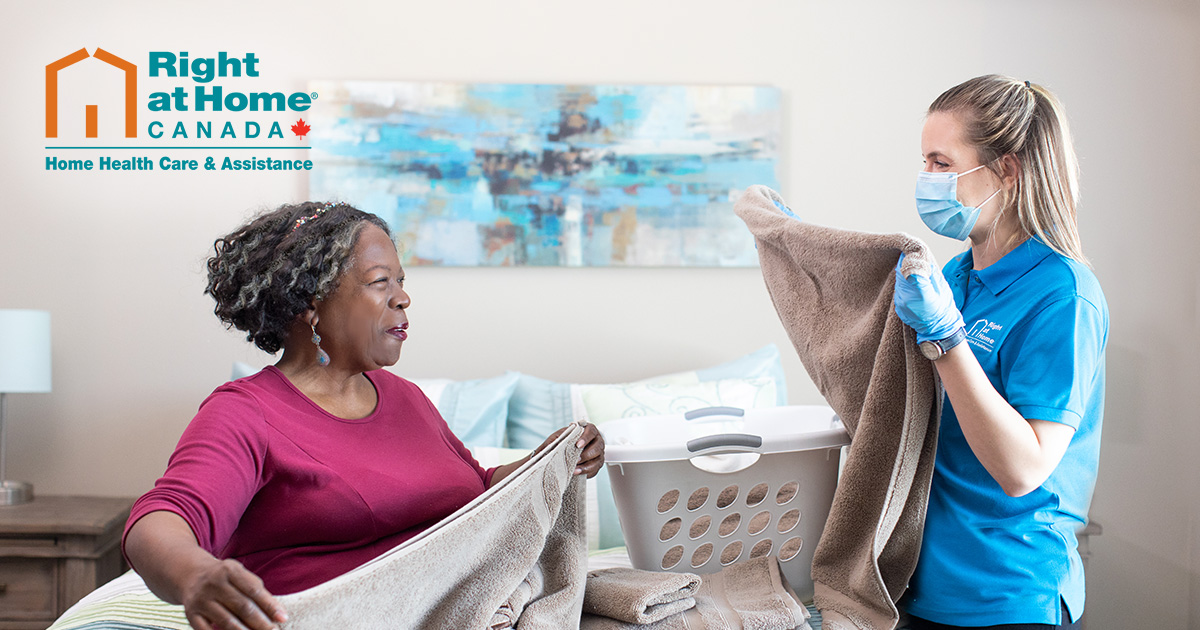

Exercising the Ageing Brain
A regular cognitive workout can improve your concentration, comprehension and recall in everyday life such as remembering people’s names or driving across town. The more you challenge your brain, the more brain cells and nerve connection pathways you form. Instead of grey matter simply dying as you age, challenging your brain can activate new cell growth throughout your lifetime.
A number of brain exercise routines are recommended to help curb mental slowing:
- Learn a new skill. Your brain becomes more active when you take up a new hobby or activity such as learning to cook different foods, speak a foreign language, play an instrument or try a new sport.
- Continue to socialize and verbalize. Talk with others about world events and issues important to you and your community.
- Be active in whatever way you can. This could be going for walks, exercise/assisted exercise or working with a Caregiver to do house chores to the best of your ability.
- Read and explore books, newspapers, magazine articles and other forms of written communication.
- Write as often as you can. Whether you keep a journal, write emails, jot down memories, or create fictional stories – keep at it.
- Complete crossword puzzles and Sudoku. These brain builders are especially beneficial if you set a time limit and work quickly.
- Play bridge, chess, or board and computer games. Expose yourself to the paces of mental strategy and focus.
- Participate in brain games such as colour match, speed match and word-find challenges. While computer-accessed cognition games provide mental stimulation and support short-term memory, a 2014 report by cognition experts from 40 institutions in six countries questions whether digital brain products improve brain functioning overall. The researchers advise caution on expecting these types of brain games to prevent dementia or other types of cognitive decline.
Right at Home adult home care services can provide older adults with companionship and help with activities and games that boost cognitive skills. In addition, a holistic approach to better brain health involves lowering stress, eating nutritiously, maintaining regular physical exercise and getting adequate sleep. Our Caregiver follow strict COVID-19 policies to keep you and your loved one safe. For those looking for the highest level of safety, Right at Home offers virtual-visits and check-ins.
Which brain exercises do you enjoy doing to help maintain your cognitive proficiency?
Why Right at Home?
- Over 20 years of experience. Right at Home has been providing award winning customized senior care and home care for over 20 years.
Read more about who we are > - YOUR Caregivers are all part of YOUR Care Team. This means that there is no revolving door of Personal Support Workers and Nurses. With the help of your Care Planner, you choose and get to know them. This leads to an level of care for your loved one that is unsurpassed in our industry.
Read More about how Care Teams work > - Professional Caregivers. Right at Home Mississauga's dedication to the highest level of service is the basis for everything we do including how we hire and train our Caregivers.
read more about our Nurses and PSWs > - Working with government support. Your Care Planner will work to help you find the government supports you are eligible for (if you would like them) and then work to find a solution for the care needs that go above what government and family can do. We will also work around the government care plan so that we are enhancing it.
We help in home, wherever home is to you.
Our Caregivers are always out in the community visiting homes, Retirement Residences, Long Term Care (LTC), hospices and hospitals. Our Mississauga team will help out wherever you need us. If you are looking for help in other areas of Ontario or Canada please reach out and we will put you in touch with one of our other Care Offices.



